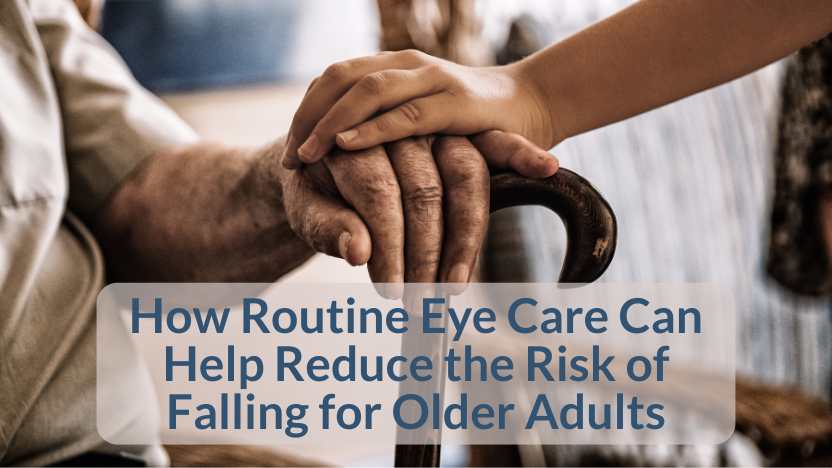Routine Eye Exams Can Help Keep the Elderly On Their Feet
Posted by EyePromise on Apr 3rd 2025
Falls by older adults are considered a public health crisis in the U.S. They’re considered as such because they can lead to injury, loss of independence, and even premature mortality. In fact, falls are the leading cause of injury-related deaths among adults 65 and up. American Public Health Association’s (APHA’s) has released a new policy statement to help address this growing issue, and their recommendation includes the need for annual eye exams.
Why Falls Are a Problem
For older adults 65 and up, bouncing back after a fall isn’t as easy as it is for younger people, especially kids. Every year, over 32,000 older adults lose their life due to falls, with 3 million more resulting in emergency department and hospital admissions for serious injury to the brain, hips, and more. More than a quarter of adults in this age group reported at least one fall in the last year. These rates of falls and injuries are believed to be partially due to the underutilization of a national initiative known as Stopping Elderly Accident, Deaths & Injuries (STEADI).
Most importantly, most falls can be avoided.
How Eye Exams Can Help
Another contributing factor to falls is a decline in vision, whether it’s visual acuity, visual fields, depth perception, or contrast sensitivity. The risk of falls doubles for the elderly with any kind of visual impairment, so early detection and intervention of eye health issues like age-related eye health issues, cataracts, visual challenges due to blood sugar control issues, and glaucoma are critical avoidance tools. Maximizing visual function also plays a vital role in reducing the risk of falls.

Helping Yourself and Your Loved Ones
So, how can you help yourself and your loved ones stay on your feet? First and foremost, schedule and keep your annual eye exams. These exams are critical for early identification as mentioned above, as well as correcting any refractive issues that could be impacting vision. But you can go beyond the standard acuity testing.
How? Ask your eye care provider about measuring your macular pigment optical density (MPOD). MPOD measurement can detect challenges in visual function even before you notice any issues. Low MPOD is associated with poorer:
- Visual acuity
- Contrast sensitivity
- Visual fields
- Depth perception
Additionally, taking EyePromise® eye vitamins can further support and enhance your visual function. Thanks to high levels of our key ingredients – dietary zeaxanthin and lutein – EyePromise eye vitamins are guaranteed to increase MPOD and have been demonstrated to improve:

By scheduling your routine eye exams and maximizing your visual function through understanding MPOD and beginning an eye vitamin regimen, you can start to reduce the risk of falls for yourself and your loved ones. EyePromise can help you improve your visual function. Find out which EyePromise eye vitamin is right for you today!


